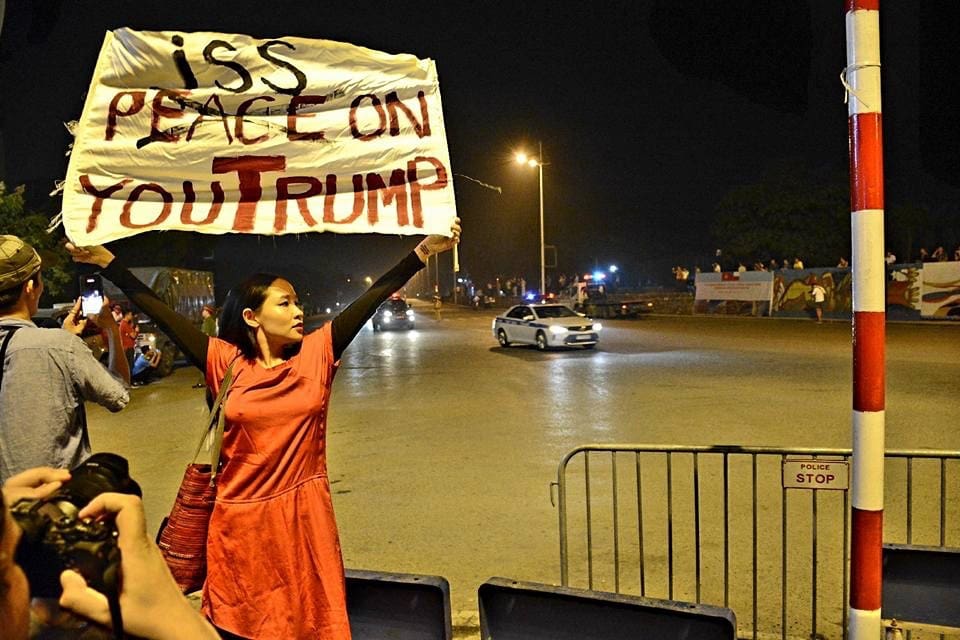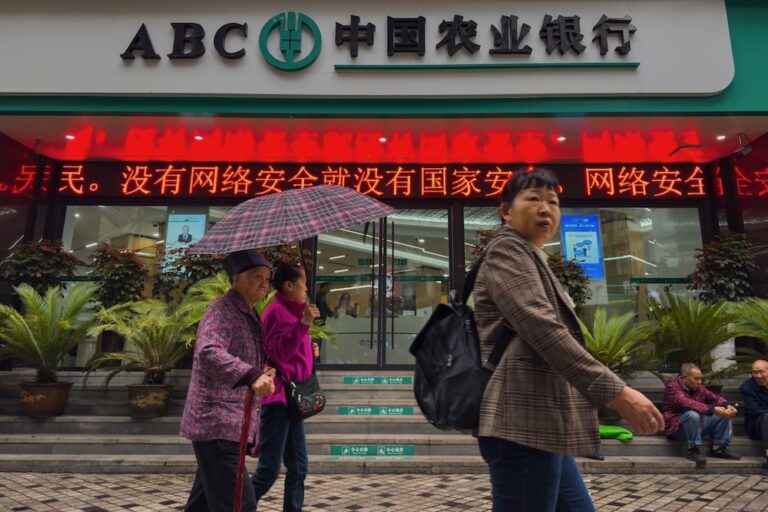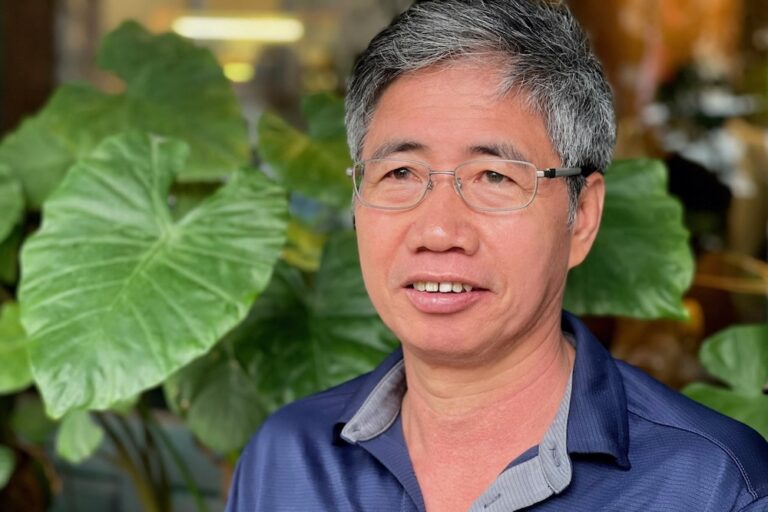Vietnamese artist Mai Khoi was evicted from her house hours after she raised a protest banner in Hanoi while United States President Donald Trump's motorcade was passing.
Vietnamese artist Mai Khoi was evicted from her house hours after she raised a protest banner in Hanoi while United States President Donald Trump’s motorcade was passing. Trump arrived in Vietnam on 11 November 2017 to attend the annual summit of the Asia Pacific Economic Cooperation.
Khoi is a musician whose eccentric lifestyle, unusual fashion, and controversial songs have led many to compare her with Hollywood singer Lady Gaga. She has a large following among young Vietnamese and she was once a winner in the country’s album and song of the year awards.
But Khoi’s advocacy for human rights, free speech, and democratic reforms didn’t sit well with authorities. Her shows were eventually banned and her songs were censored which affected her music career. She tried to run as an independent candidate in the Communist-controlled National Assembly but her application was rejected. Last year, she met with former US President Barack Obama to discuss the state of human rights in Vietnam.
After being evicted from her house, Mai Khoi and her husband hid from the police for 13 days while looking for a new place to stay.
Khoi’s case is the latest example of Vietnam’s intolerance of dissenting views and the hardships faced by artists and activists in their push for greater freedom and protection of civil liberties in the country.
Through an email interview with this author, Mai Khoi shared her reasons for protesting the visit of Trump, her eviction in the aftermath of the protest, and her continuing search for safety just because she peacefully exercised her right to publicly express her views.
What was your aim in conducting the protest?
I want to practice the right of free expression in Vietnam rather than just talk about the need for freedom of expression. Through a little protest and the violent reactions of the authorities, I showed the world that Việtnam does not have freedom of expression. My protest also is a way of resistance against social norms that restrict freedom of expression.
I protested Trump because I don’t agree with his racism, sexual entitlement and lack of concern for human rights in Vietnam. Also because he withdrew from the Paris Agreement on climate change.
You were reportedly evicted from your house after the protest, what is your situation today?
I was kicked out of my house right after the protest. The police put pressure on the landlord to kick me out of the house. I’m looking for another place to rent but I can’t go back to my apartment to take my things because the secret police go around in front of my house all the time to follow me. I have to move from house to house every night to hide from the police. A few days ago they detained three activists who met with European Union officials. The police make people scared by arresting and threatening (activists). I feel unsafe, and I have nowhere to stay in my own country. I have to do many things, many works in Hanoi but I don’t know where I can sleep tonight in Hanoi.
What did authorities tell you? What’s the feedback on the protest inside Vietnam?
The authorities told the landlord that “Mai Khoi is having problem with the police and she does not have permanent residency in Hanoi” and so the landlord had to kick me out of the house. The police didn’t say anything directly to me. Thereafter, I was locked in my house and then evicted for staging a peaceful protest.
Domestically, the protest sparked a fierce national debate about freedom of expression and hijacked official narratives about Trump’s visit. Many people were angry with me because of my protest banner, they said freedom of speech has to be polite and they said I should have protested Xi Jinping (China) instead of Trump. Others defended my right to express myself. Internationally, it resonated with the anti-Trump sentiment, making headlines, topping Reddit for the day and highlighting the dire human rights situation in Vietnam.
What is your message to fellow Vietnamese? And to the international community?
To Vietnamese, I want them to understand what freedom of expression really means. If they don’t agree about anything, let them come out in the streets with banners in their hands.
To the international community, I want to encourage all people around the world, especially international media to pay attention to the human rights situation in Vietnam right now.



